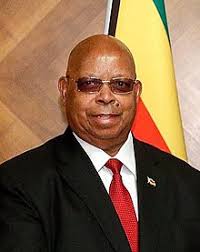Zimbabwe has shown great commitment in combatting HIV and AIDS despite the bottlenecks that hamper the country’s full potential in alleviating the Health scourge as learnt from the Speaker of Parliament at a sensitisation workshop organised by the National AIDS Council in Harare.
Speaking during the workshop, Jákob Mudenda, the Speaker of Parliament emphasised the significant strides that the country has made in meeting HIV and AIDS combatting targets set by United Nations AIDS, UNAIDS, ahead of the set deadlines.
‘“As a nation, we have made significant progress, particularly in achieving the Joint United Nations Programme on HIV/AIDS (UNAIDS) 95-95-95 targets. These targets aim to ensure that 95% of people living with HIV know their status, 95% of those diagnosed with HIV are on antiretroviral therapy (ART) and 95% of those on ART achieve viral suppression. Zimbabwe must be applauded in exceeding these targets ahead of the global target year of 2030.” Mudenda highlighted.
Mudenda attributed the success to a robust primary health system, community health workers, among other strategies stakeholders have put in place to combatting HIV and AIDS.
“At the heart of this health response was the robust primary healthcare system which has been the cornerstone of delivering HIV-related services to communities across the country.”
Furthermore, “Community Health Workers have played a pivotal role in demystifying HIV, promoting voluntary counselling and testing (VCT), providing treatment adherence support and acting as a bridge between the healthcare system and the community. Without them, many of the most vulnerable populations would have been left behind.” Mudenda emphasised.
Mudenda further highlighted that challenges the country continually face in its quest to fight the virus that has left families parentless and vastly contributed to poverty including brain drain and financing challenges.
“Zimbabwe faces a need-based shortage of 57,573 health professionals and specialists. This attrition threatens the sustainability of the HIV programmes and other related healthcare imperatives.”
Furthermore, “It is indisputable that financing remains a cornerstone of Zimbabwe’s HIV response as anchored by the national Budget and the National Aids Trust Fund. According to the Zimbabwe National AIDS Spending Assessment (NASA), total HIV programme spending increased from USD 278 million in 2019 to USD 387 million in 2024, supported largely by donations from development partners.” Mudenda highlighted.
Mudenda appreciated the coordinated effort by stakeholders in the quest to fight the Health purge.
The meeting which was held at the New Parliament building was attended by the Parliamentary Portfolio Committee on Health, Non State Actors and the media.

